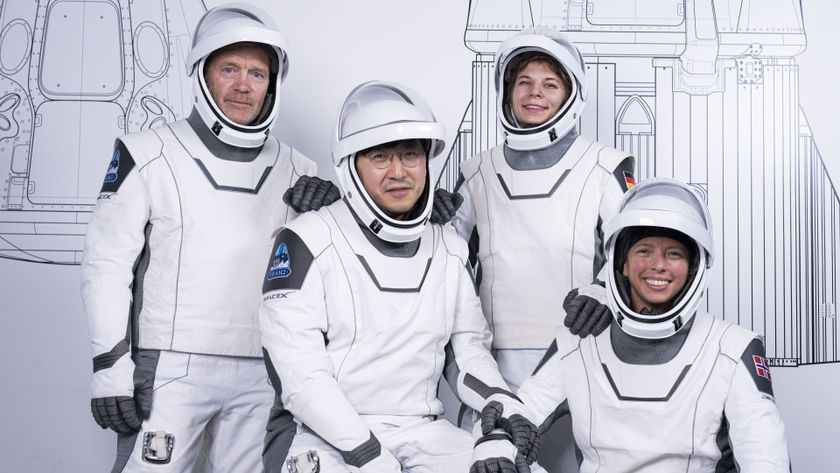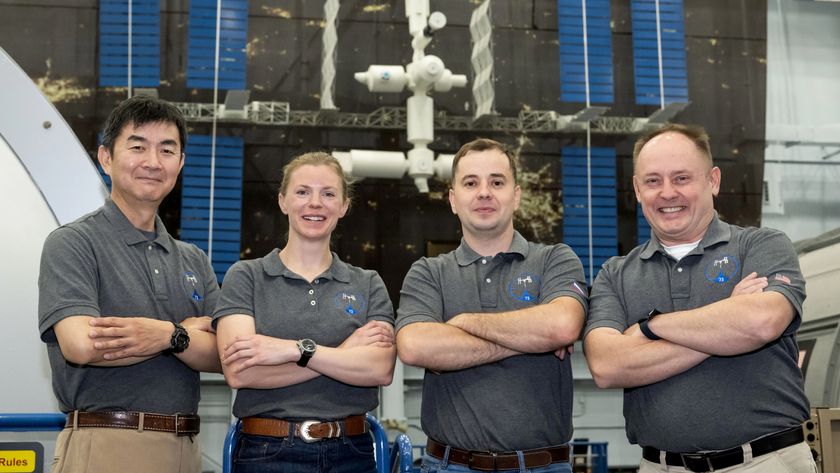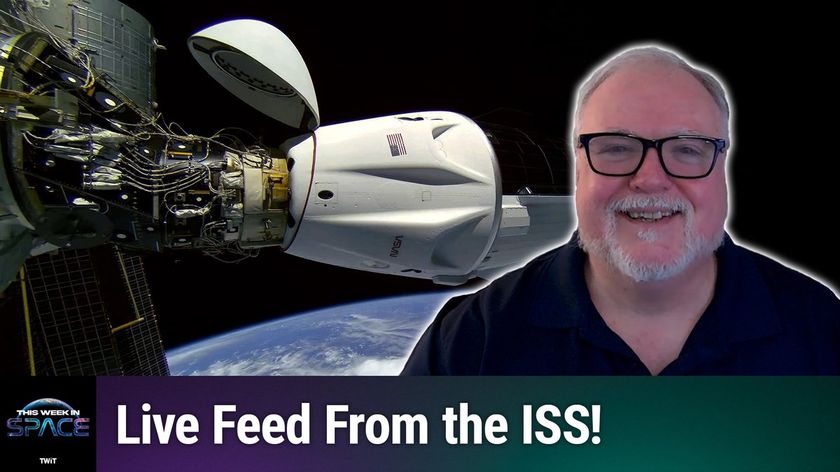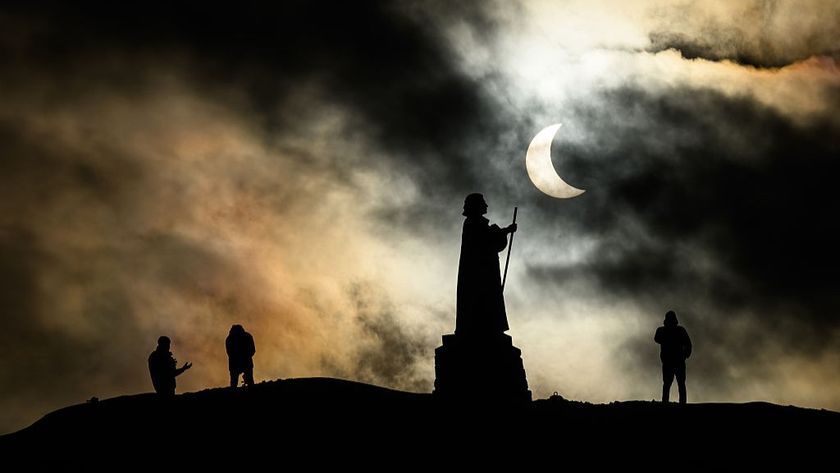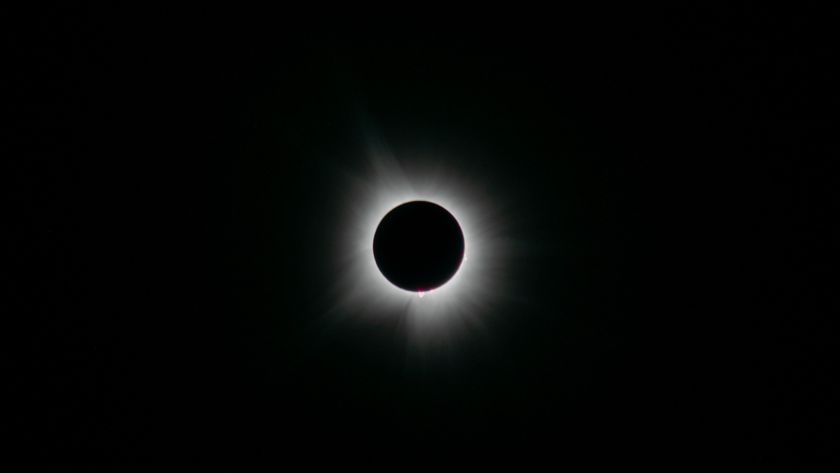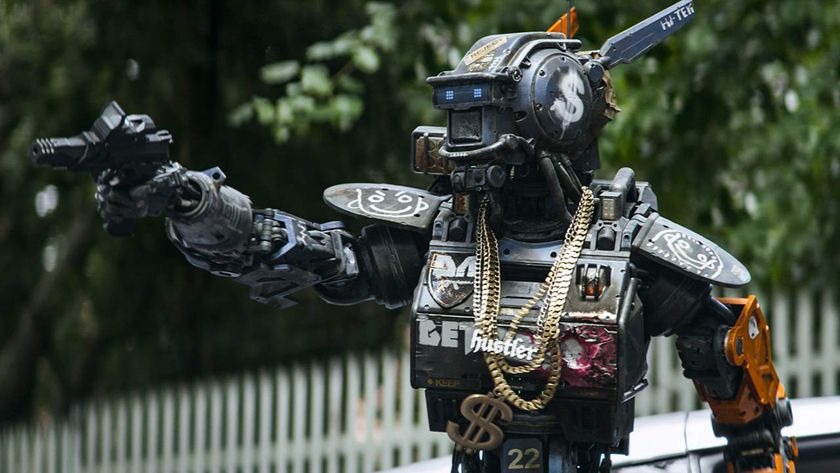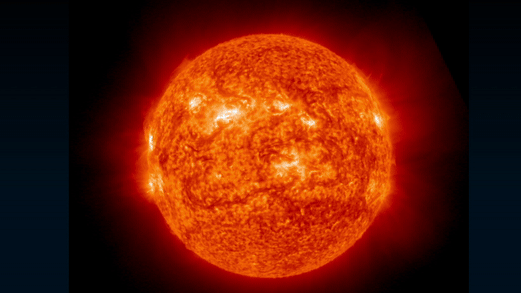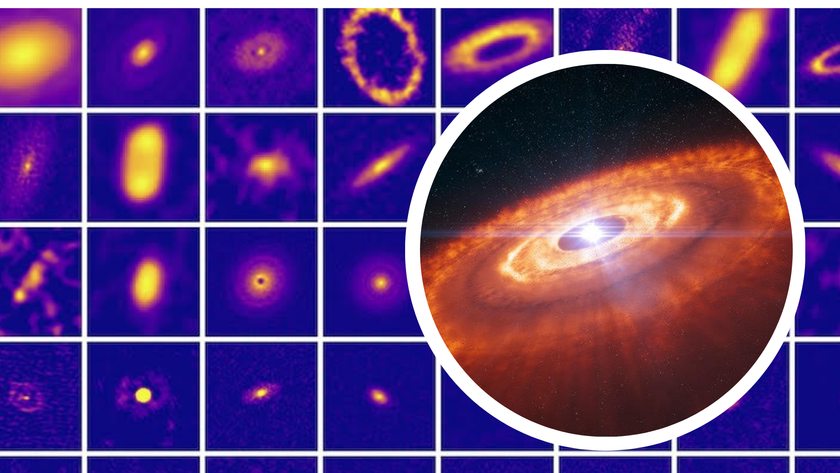Russian Rocket Chief Throws Some Shade on Elon Musk's Moon Plan
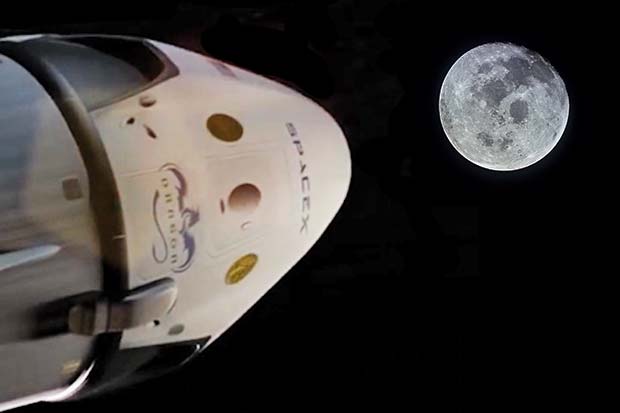
The head of Russia's most prominent spaceflight company questioned whether Elon Musk's SpaceX will be able to launch people around the moon next year and said Russia plans to revive tourism flights to the International Space Station (ISS) by 2020.
"As for the state of affairs specifically at Elon Musk's company, it would be difficult to carry out such a mission in 2018, and even in 2020," Vladimir Solntsev, general director of RSC Energia, the primary contractor for Russia's human spaceflight program, said in a wide-ranging Q&A with the Russian news agency TASS.
"Nobody has yet even seen the designs. There’s no launch vehicle, no spacecraft," Solntsev added. "The Crew Dragon spacecraft designed for missions to the ISS and Falcon 9 launch vehicle are a far cry from a spacecraft and a rocket that are needed for a mission towards the moon." [How SpaceX's Lofty 2018 Moon Flight Will Work]
Musk has said the circumlunar flight will be launched in 2018 using a larger Falcon Heavy booster that is composed of three Falcon 9 first stages. The Falcon Heavy is set to make its maiden flight later this year.
SpaceX has been quietly developing plans for the lunar flight for several years, but the company has revealed few details of the plan publicly.
RSC Energia has been working for years on launching a similar mission that would use a modified Soyuz spacecraft, but the schedule for the flight has been delayed many times. Solntsev said RSC Energia has the advantage of a human-rated booster and spacecraft.
Get the Space.com Newsletter
Breaking space news, the latest updates on rocket launches, skywatching events and more!
"I think that they [potential customers] still trust us more," he told TASS. "We have 141 manned launches under our belt. Competition is useful; it provides a good motivation to improve a project for the benefit of the customers."
Solntsev also said he expects NASA to exercise options it has for three Soyuz seats for ISS flights in 2019, because of delays experienced by Boeing and SpaceX in fielding new vehicles under NASA's Commercial Crew Program.
RSC Energia provided five Soyuz seats to Boeing to sell as part of the settlement of a lawsuit over the Sea Launch venture, in which the two companies are partners. NASA purchased two seats from Boeing for flights in 2017 and 2018, and it has options on the other three seats if commercial crew flights are delayed.
"At the same time, we are now in talks with potential clients, and we believe that even in the unlikely case of NASA not taking up the option, we will be able to find those who wish to fly to the ISS in 2019," Solntsev said.
Russia plans to continue to fly four Soyuz spacecraft per year, which are currently needed to maintain crew on the space station, after Boeing and SpaceX begin to fly crew to the space station, he added. The Soyuz flights will be split between government and commercial missions.
Russia will use the flights to revive a program to fly tourists to the ISS. Between 2001 and 2009, seven wealthy individuals flew a total of eight times to the space station. The program was put on hold when space shuttle flights ended in 2011, leaving Soyuz as the only spacecraft capable of flying crews to the ISS.
Solntsev said RSC Energia is working on a plan to squeeze more revenue out of these flights.
"In 2018, we are planning to try flying without the flight engineer on board, and from 2019, we are planning to make it the standard operational practice," he said. "There will be one commander on board to provide spacecraft control, and two spaceflight participants."
Russia plans to use Soyuz to fly cosmonauts to the ISS until 2024, which is the current date for decommissioning the station, Solntsev said. A larger crew vehicle named Federation (Federatsiya) that's capable of carrying four to six cosmonauts and flying lunar missions is set to enter service at about the same time.
Solntsev also revealed that officials are considering developing an automated variant of the Soyuz that would be capable of returning cargo to Earth. Russia's Progress freighter lacks a return capability.
You can read an English translation of Solntsev's entire TASS interview here: http://www.energia.ru/en/news/news-2017/news_05-02_1.html.
Follow us @Spacedotcom, Facebook or Google+. Originally published on Space.com.
Join our Space Forums to keep talking space on the latest missions, night sky and more! And if you have a news tip, correction or comment, let us know at: community@space.com.
Douglas Messier is the managing editor of Parabolicarc.com, a daily online blog founded in 2007 that covers space tourism, space commercialization, human spaceflight and planetary exploration. Douglas earned a journalism degree from Rider University in New Jersey as well as a certificate in interdisciplinary space studies from the International Space University. He also earned a master's degree in science, technology and public policy from George Washington University in Washington, D.C. You can follow Douglas's latest project on Twitter and Parabolicarc.com.
